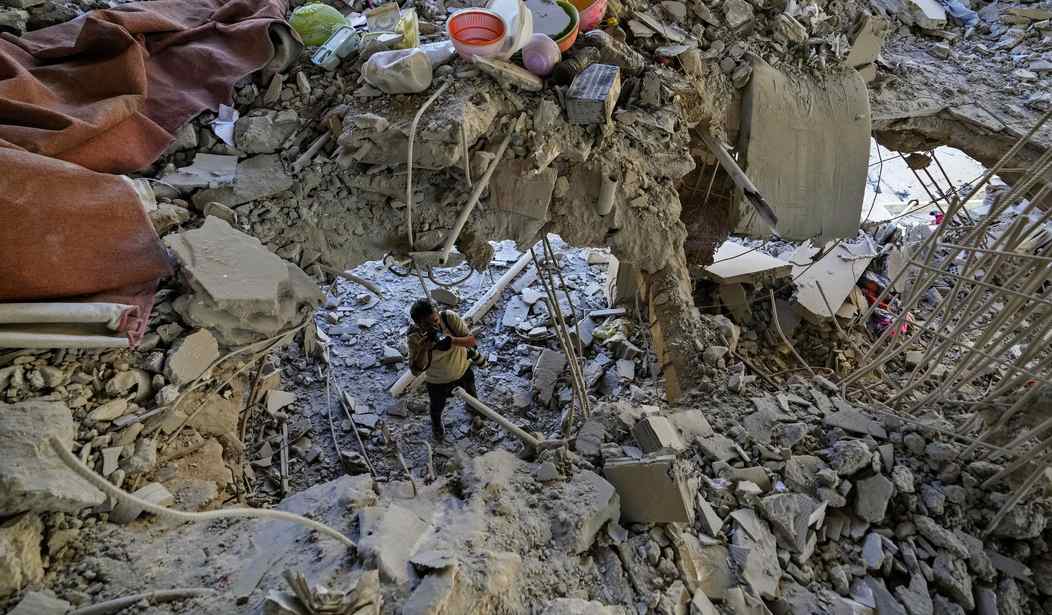A deal for a ceasefire in Lebanon between Israel and Hezbollah has been reached, according to Axios, quoting a U.S. official. Associated Press reports that the deal could come "within days."
What's important is that UN resolution 1701, agreed to in 2006 but never fully implemented, will finally have some teeth. The 2006 resolution denied Hezbollah weapons to rearm and stipulated that the terrorists remain north of the Litani River, which is about 18 miles from the Israeli border. Both parts of the resolution were never realized. Residents in northern Isreal were under constant threat from Hezbollah cadres just a few miles away.
The current ceasefire deal calls for the Lebanese army to move in and occupy Hezbollah positions on the border. But the U.S.-supplied Lebanese army has never stood up to Hezbollah in the past and isn't expected to this time.
Now, if Hezbollah crosses the Litani or begins to rearm, Israel will have the right to cross the border to alter the strategic situation. An international panel headed by the U.S. and France will oversee the implementation of the deal, which means the United Nations International Force in Lebanon (UNIFIL) that allowed Hezbollah to rearm after the 2006 war will be sidelined. The U.S. has already indicated in a side letter "that Israel has the right to act whenever it sees an 'immediate threat' from Lebanon."
"We think we have a deal. We are on the goal line but we haven't passed it yet. The Israeli cabinet needs to approve the deal on Tuesday and something can always go wrong until then," an anonymous U.S. official told Axios.
The deal includes a U.S.-led oversight committee to monitor implementation and address violations.
The U.S. has agreed to give Israel a letter of assurances that includes support for Israeli military action against imminent threats from Lebanese territory, and for action to disrupt things like the reestablishment of a Hezbollah military presence near the border or the smuggling of heavy weapons, Israeli and U.S. officials say.
Under the agreement, Israel would take such action after consultations with the U.S., and if the Lebanese military did not deal with the threat.
The strategic implications of this deal are breathtaking. In effect, the deal isolates Hamas and severely weakens Iran. Taking Hezbollah off the board as a major member of the "resistance" is another body blow to Iran.
As for Hamas, "Israeli and Palestinian sources signal they believe ceasefire deal may cause terror group to soften its hardline stance, given it will no longer have Hezbollah’s military support," reports Times of Israel.
Hezbollah had long insisted that it would not agree to a ceasefire until the war in Gaza ends, but it recently dropped that condition.
Israeli, Palestinian and American sources and officials believe the loss of Hezbollah support may push the Gazan terror group to soften its demands, breaking a prolonged deadlock in the negotiations.
Prime Minister Benjamin Netanyahu was set to convene the high-level security cabinet in Tel Aviv on Tuesday evening to approve the US-proposed ceasefire in Lebanon, an Israeli official told The Times of Israel on Monday.
Lebanese sources told Reuters on Monday that US President Joe Biden and French President Emmanuel Macron were expected to announce a ceasefire imminently.
If the ceasefire were to hold, the deal could significantly reduce tensions in the region. Iran is too busy licking its wounds from the body blows delivered by Mossad and the IDF over the last few months.
Related: Iranian Ruling Body Appoints Khamenei's Son to Succeed Him
I feel compelled to point out that there is no deal yet. In the past few months, when it appeared a deal was imminent, the bottom would fall out. But all sides seem confident that the remaining issues are being addressed quickly and the two sides will at least try to implement the deal soon.










Join the conversation as a VIP Member